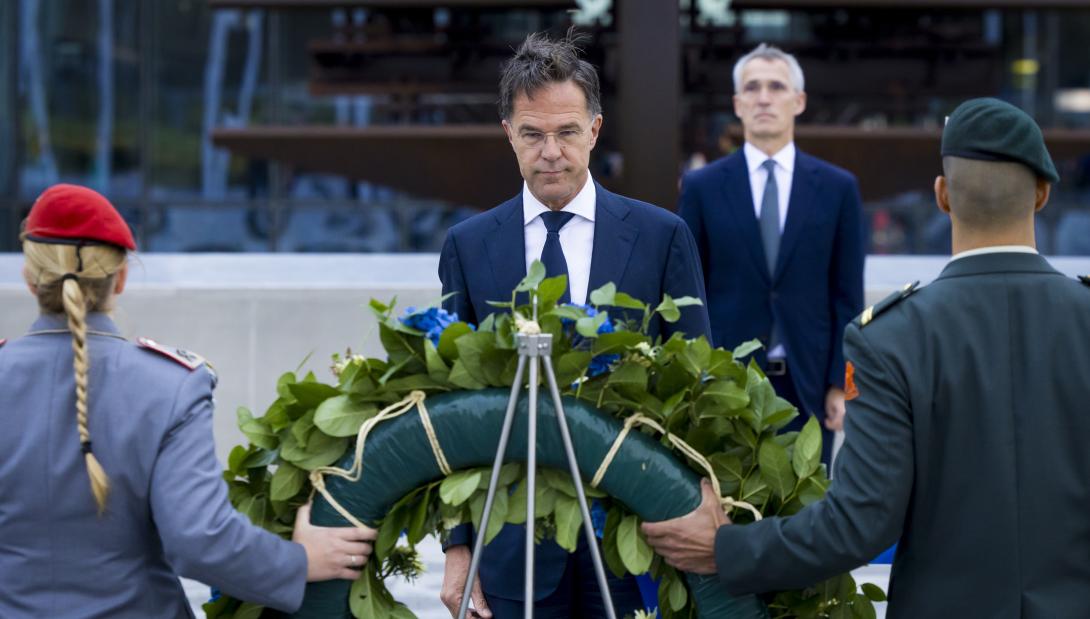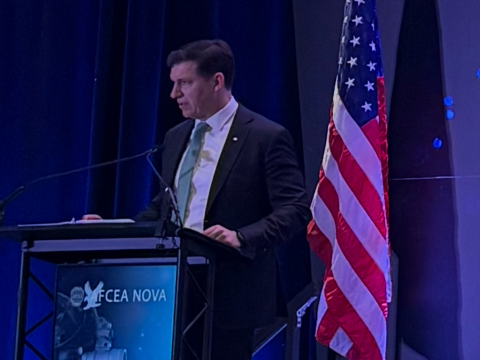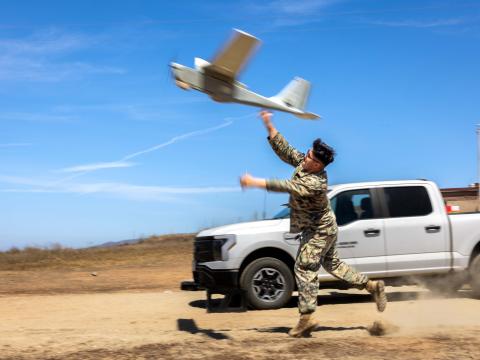New NATO Secretary General Prioritizes Defense Spending and Ukraine Support
After 10 years of service as the NATO secretary general, Jens Stoltenberg handed his position over to Mark Rutte during a special session of the North Atlantic Council on Tuesday.
Rutte was the prime minister of the Netherlands for 14 years, making him the longest-serving Dutch prime minister in history. He presided over four coalition governments and led his country through economic crisis, the coronavirus pandemic and the war in Ukraine.
In his first press conference as NATO secretary general, Rutte addressed his three main priorities. He aims to ensure that the alliance has the capabilities to protect against any threat, support Ukraine in its war against Russia and address the global challenges to Euro-Atlantic security.
To face challenges ahead, Rutte said he’s pushing for a stronger transatlantic defense industry, greater investment in innovation and more secure supply chains.
“Allies are already stepping up, with plans to acquire thousands of air defense and artillery systems; many hundreds of modern aircraft, mostly fifth-generation F-35s; as well as substantial high-end capabilities,” Rutte said during his press conference. “But to truly match our capabilities with our needs, we need significantly more defense spending.”
The defense industrial pledge agreed upon at the Washington Summit is a priority for Rutte, as he expressed confidence that NATO can ramp up defense production and encourage defense industry companies to do the same.
While he recognizes that not all countries can contribute the same expenses, Rutte said he supports country-specific recommendations that encourage allies to invest what they can into defense.
Secondly, Rutte said his focus is on aiding Ukraine in its fight against Russian aggression to maintain peace and stability in Europe.
“The cost of supporting Ukraine is far, far lower than the cost we would face if we allow [Vladimir] Putin to get his way,” Rutte said.
The secretary general said he’s dedicated to implementing the agreed-upon support package for Ukraine, including a long-term financial pledge and permanent path to membership. He also said he supports Ukraine defending itself by striking legitimate targets on Russian territory.
“It's up to each ally to determine its support for Ukraine. That's not up to me. This is for the individual allies in their relationship with Ukraine,” Rutte said. “And we also have to be clear that not a single, one single weapon alone will win the war.”
Rutte identified China as a “decisive enabler” of Russia’s war against Ukraine through its support of Russia’s military industry, and he called out North Korea and Iran for helping Russia sustain its illegal war. He recognized these nations as threats but did not answer a question about what it would take to trigger a strong response from NATO against China in its support of Russia.
To form a shared approach to these threats, Australia, Japan, New Zealand and South Korea will participate in a NATO defense ministerial for the first time in October.
To further support Ukraine and the rest of Europe, Rutte said he plans to collaborate more with the European Union and like-minded nations. While NATO and the European Union have similar values and goals to strengthen European defense, Rutte said he’s not looking to create identical entities.
“The EU [European Union] has to now think about how to implement all these policies, and I'm really looking forward to working with them in conjunction because, at the end, we have the same goal, and this is to keep also this part of the world safe,” the new secretary general said.




Comments